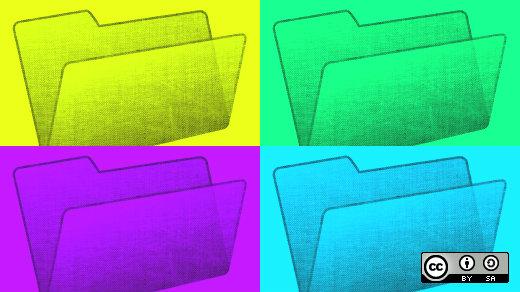https://opensource.com/article/18/1/securing-linux-filesystem-tripwire

Linux integrity checker notifies you if malware or other events make changes to your filesystem.

Image credits :
While
Linux is considered to be the most secure operating system (ahead of
Windows and MacOS), it is still vulnerable to rootkits and other
variants of malware. Thus, Linux users need to know how to protect their
servers or personal computers from destruction, and the first step they
need to take is to protect the filesystem.
In this article, we'll look at Tripwire, an excellent tool for protecting Linux filesystems. Tripwire is an integrity checking tool that enables system administrators, security engineers, and others to detect alterations to system files. Although it's not the only option available (AIDE and Samhain offer similar features), Tripwire is arguably the most commonly used integrity checker for Linux system files, and it is available as open source under GPLv2.
Tripwire also has a configuration file, which specifies the locations of the database, policy file, and Tripwire executable. It also provides two cryptographic keys—site key and local key—to protect important files against tampering. The site key protects the policy and configuration files, while the local key protects the database and generated reports.
Tripwire works by periodically comparing the directories and files against the snapshot in the database and reporting any changes.
Debian and Ubuntu users can install Tripwire directly from the repository using
Also, select or choose "Yes" if it's required to build the configuration file. Choose and confirm a passphrase for a site key and for a local key. (A complex passphrase such as
In this article, we'll look at Tripwire, an excellent tool for protecting Linux filesystems. Tripwire is an integrity checking tool that enables system administrators, security engineers, and others to detect alterations to system files. Although it's not the only option available (AIDE and Samhain offer similar features), Tripwire is arguably the most commonly used integrity checker for Linux system files, and it is available as open source under GPLv2.
How Tripwire works
It's helpful to know how Tripwire operates in order to understand what it does once it's installed. Tripwire is made up of two major components: policy and database. Policy lists all the files and directories that the integrity checker should take a snapshot of, in addition to creating rules for identifying violations of changes to directories and files. Database consists of the snapshot taken by Tripwire.Tripwire also has a configuration file, which specifies the locations of the database, policy file, and Tripwire executable. It also provides two cryptographic keys—site key and local key—to protect important files against tampering. The site key protects the policy and configuration files, while the local key protects the database and generated reports.
Tripwire works by periodically comparing the directories and files against the snapshot in the database and reporting any changes.
Installing Tripwire
In order to use Tripwire, we need to download and install it first. Tripwire works on almost all Linux distributions; you can download an open source version from Sourceforge and install it as follows, depending on your version of Linux.Debian and Ubuntu users can install Tripwire directly from the repository using
apt-get. Non-root users should type the sudo command to install Tripwire via apt-get.CentOS and other rpm-based distributions use a similar process. For the sake of best practice, update your repository before installing a new package such as Tripwire. The commandsudo apt-get update sudo apt-get install tripwire
yum install epel-release simply means we want to install extra repositories. (epel stands for Extra Packages for Enterprise Linux.)This command causes the installation to run a configuration of packages that are required for Tripwire to function effectively. In addition, it will ask if you want to select passphrases during installation. You can select "Yes" to both prompts.yum update yum install epel-release yum install tripwire
Also, select or choose "Yes" if it's required to build the configuration file. Choose and confirm a passphrase for a site key and for a local key. (A complex passphrase such as
Il0ve0pens0urce is recommended.)Build and initialize Tripwire's database
Next, initialize the Tripwire database as follows:tripwire –-init Basic integrity checking using Tripwire
You can use the following command to instruct Tripwire to check whether your files or directories have been modified. Tripwire's ability to compare files and directories against the initial snapshot in the database is based on the rules you created in the active policy.tripwire --check –check command to specific files or directories, such as in this example:tripwire –-check /usr/tmp –check command, this command allows you to consult Tripwire's manual:tripwire --check --help Generating reports using Tripwire
To easily generate a daily system integrity report, create acrontab with this command:crontab -e 40 5 * * * usr/sbin/tripwire --check

No comments:
Post a Comment